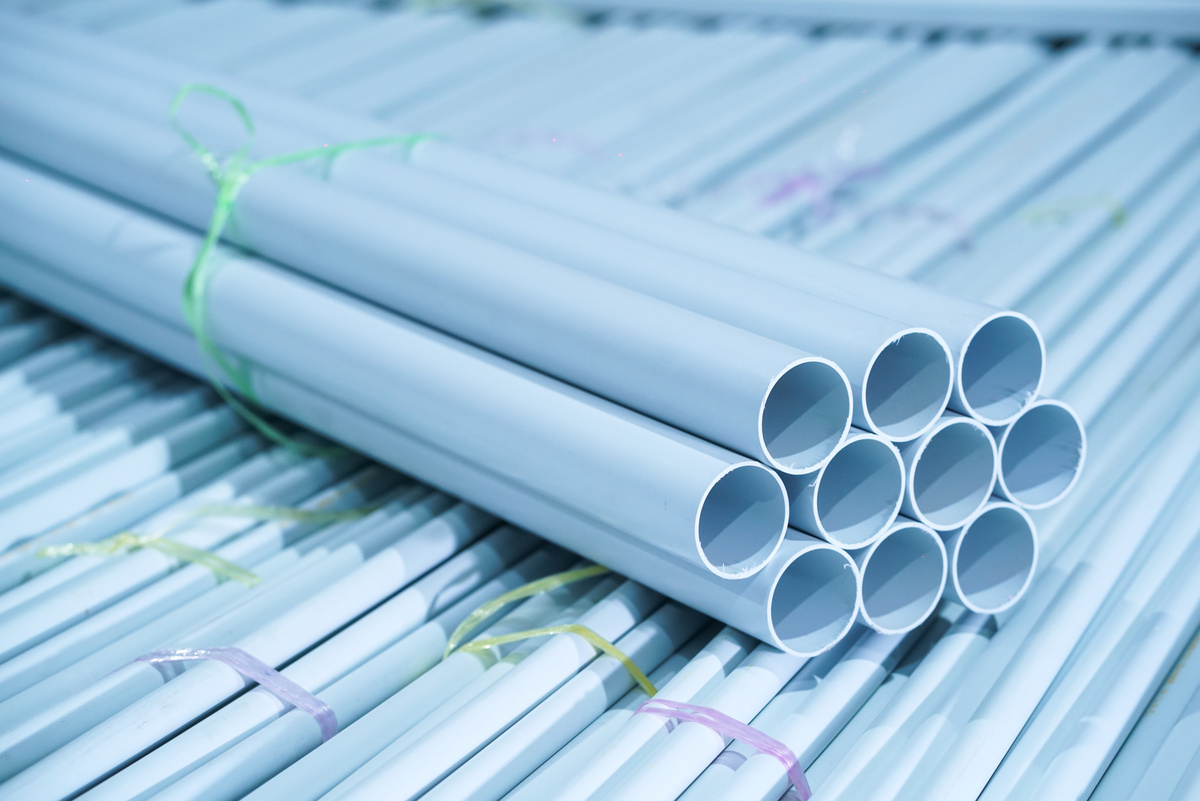Factors to Consider When Choosing Electrical Conduits for Your Home

Electrical conduit pipes are a critical element in any home wiring project, offering protection, organization, and durability to the electrical system. Choosing the right conduit can ensure the safety, longevity, and efficient functioning of your electrical infrastructure. Whether you're planning to install new wiring or replace old conduits, understanding the key factors to consider when selecting electrical conduits is essential. This article will delve deep into the considerations that will guide you to the best choices for your home wiring needs.
What Are Electrical Conduit Pipes?
Before we dive into the factors to consider, it’s important to first understand what electrical conduit pipes are and why they are used. Electrical conduit pipes are protective tubes that encase electrical wires, shielding them from physical damage, moisture, and other potential hazards. These pipes help organize wiring, prevent accidental short circuits, and maintain the structural integrity of the electrical system over time.
There are various types of conduit pipes, each designed for specific environments and installation needs. The material, thickness, flexibility, and installation method of the conduit can vary greatly depending on its intended use.
Factors to Consider When Choosing Electrical Conduits for Your Home
Type of Electrical Conduit Material
The material of the conduit is one of the first and most important factors to consider. There are different types of conduit materials available in the market, each offering unique advantages depending on the application.
PVC (Polyvinyl Chloride): One of the most commonly used materials, PVC conduit pipes are lightweight, corrosion-resistant, and inexpensive. They are ideal for residential wiring, especially in areas where the conduit will be concealed within walls. The best PVC conduit pipes in Pakistan are made of high-quality material that ensures durability and long-term protection.
Metal Conduit: Metal conduits, like steel or aluminum, are used for added durability and protection in environments where physical damage is a risk. They are often preferred for commercial or industrial applications. For residential homes, metal conduits can be an excellent choice in areas prone to mechanical stress or where added grounding is required.
Flexible Conduit: A flexible conduit is made from metal or plastic and is often used in spaces where the wiring needs to be flexible or movable. It is commonly used in areas with high moisture or in complex installations that require some bending of pipes.
Each material has its strengths and should be chosen based on your home’s unique needs and the environment in which the conduit will be installed.
Location of Installation
The location where the electrical conduit is being installed plays a significant role in determining the type of conduit to use. Electrical conduits can be installed both indoors and outdoors, and the environment will dictate the kind of material and conduit thickness that is needed.
Indoor Installations: For indoor installations, especially in dry areas, PVC conduit pipes are often the best choice due to their affordability and ease of installation. They can be easily cut, shaped, and fixed without the need for specialized tools.
Outdoor Installations: Outdoor installations require conduits that can withstand exposure to the elements. In this case, using a metal conduit like aluminum or galvanized steel may be beneficial due to its ability to resist corrosion and physical damage. These conduits are more resilient in harsh weather conditions.
Wet or Damp Environments: If the conduit will be exposed to water or high humidity, choosing a waterproof and corrosion-resistant conduit material is crucial. Here, a liquid-tight flexible conduit or metal conduit with a protective coating may be ideal.
Size of the Electrical Wiring
The size of the electrical wiring that will pass through the conduit is a key consideration when selecting the right conduit. Electrical conduit sizes vary, and selecting the correct diameter ensures that the wiring fits securely without being too tight or too loose. Conduits that are too small can cause excessive friction, which might damage the wires over time, while overly large conduits can make installations messy and cumbersome.
In general, the conduit should be large enough to allow for easy pulling of the wires and to prevent overcrowding. It’s a good rule of thumb to select a conduit that’s about 25% larger than the sum of the diameters of the wires that will be inside. If you plan on upgrading or adding more wiring in the future, consider choosing a slightly larger conduit to accommodate potential expansion.
Electrical Load and Safety Requirements
Depending on the electrical load of the system, the conduit must be capable of handling the heat generated by the wires. High-voltage or high-power wiring systems may require more robust conduits that can handle higher temperatures and provide better protection.
Moreover, safety standards set by regulatory bodies like the National Electrical Code (NEC) dictate specific requirements for conduit selection. These safety codes ensure that the electrical system is designed and installed to minimize risks, such as electrical fires or electrocution. Always consult local codes and regulations before choosing your electrical conduit to ensure compliance.
Ease of Installation
The ease of installation is another crucial factor when selecting electrical conduits. Some conduits are easier to install than others, which can save you time and labor costs during the installation process.
Rigid Conduit: Rigid conduits like PVC and metal conduits are strong but require fittings and joints, which can make the installation process more labor-intensive.
Flexible Conduit: Flexible conduits, on the other hand, are easier to install in tight spaces or when dealing with complex angles. They can be bent and maneuvered to fit specific layouts, which reduces the need for additional fittings and connectors.
Considering the ease of installation is especially important if you’re handling the project yourself. If you’re not a professional electrician, flexible PVC conduits are often a good choice for home wiring, as they are easy to cut, shape, and install without professional tools.
Cost and Budget Constraints
Electrical conduit pipes vary significantly in cost depending on their material, size, and features. While PVC conduits are generally inexpensive, metal or specialized flexible conduits may be more costly due to their durability and protective qualities. Balancing your budget against the material’s benefits is essential for finding a conduit that works within your financial constraints.
Remember that while PVC conduit pipes are typically affordable, investing in a more durable conduit for specific needs (like outdoor or wet locations) may be a better long-term investment. You should also factor in the cost of installation, as some types of conduit may require professional tools or skills for proper installation.
Longevity and Durability
Durability is one of the most important considerations when choosing electrical conduits. The last thing you want is to install conduits that degrade or wear out quickly. Factors that can affect the longevity of conduits include environmental exposure (UV rays, moisture, temperature fluctuations), physical damage, and chemical exposure.
PVC Conduits: These are generally durable for indoor use and resist corrosion but can be susceptible to UV degradation if exposed to direct sunlight. They are best used in areas that are not exposed to harsh weather.
Metal Conduits: These provide excellent protection against physical damage and offer greater longevity, particularly in outdoor and industrial applications.
By choosing the right material based on environmental factors, you can ensure that the conduit lasts for many years, safeguarding your home’s electrical wiring.
Compliance with Standards and Codes
Finally, it’s essential to ensure that the electrical conduit pipes you select meet local building codes and industry standards. In many regions, there are specific regulations that govern the installation of electrical conduits to ensure safety and performance. Compliance with these standards will not only keep your home safe but also avoid fines or penalties from local authorities.
Always choose conduit products from trusted brands like the best PVC conduit pipes in Pakistan to ensure that the materials are certified and meet relevant quality and safety standards.
Conclusion
Choosing the right electrical conduit for your home wiring project involves considering several factors, from material type to environmental conditions, installation ease, and cost. The conduit serves as a protective barrier for your electrical wiring, ensuring both safety and longevity. By understanding the different types of conduit available and matching them to your needs, you can ensure a safe, efficient, and durable electrical system for your home.
Always consult with professionals or refer to local building codes when in doubt. Proper planning and informed decisions will make your electrical installations secure and effective.
Note: IndiBlogHub features both user-submitted and editorial content. We do not verify third-party contributions. Read our Disclaimer and Privacy Policyfor details.







